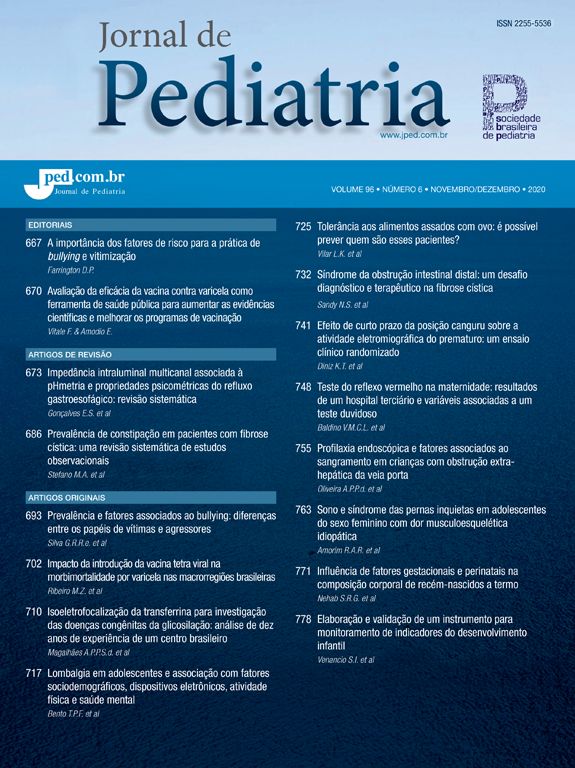To present the main mechanisms that cause gastrointestinal symptoms in patients with diabetes mellitus, their frequency, and controversies as to their occurrence in children and adolescents.
SourcesNon-systematic review of the literature conducted in the MEDLINE/PubMed and SciELO databases (1983-2011), as well as relevant book chapters. The most relevant and up-to-date articles on the topic were selected.
Summary of the findingsPrevalence of diabetes mellitus has been increasing over the years in many countries. The complications caused by this disease in the digestive system, such as gastrointestinal symptoms (nausea, vomiting, abdominal pain, heartburn, dysphagia, constipation, diarrhea, and fecal incontinence) are well known. The pathogenesis of changes in the gastrointestinal functions in patients with diabetes mellitus is still being investigated at the same time as the role of the enteric nervous system and its neurotransmitters has gained significance. As a consequence of the complications in the digestive system, which damage the enteric nervous system, patients with diabetes mellitus may have specific gastrointestinal motility disorders, some of which may be of great relevance, such as diabetic gastroparesis, constipation, and diarrhea. Gastrointestinal dysfunction increases the morbidity of diabetes mellitus and worsens the quality of life of diabetic individuals.
ConclusionsThere are few studies addressing these problems in childhood and adolescence. Diabetes mellitus affects the digestive system over the years. Because this condition worsens the quality of life of diabetic individuals and leads to complications, attention must be paid to gastrointestinal symptoms when treating patients with diabetes mellitus.









